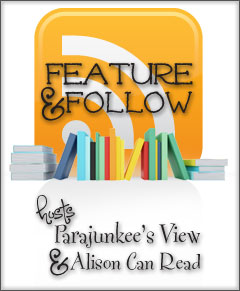I’ve heard good things about Incarnate by Jodi Meadows for months. Between the unique premise and the gorgeous cover, I knew I’d get to it eventually, but with the sequel, Asunder, releasing tomorrow (!), I thought it was about time I finally plunged in. Now I see what all the fuss was about.
The Plot (from Goodreads)
New soul
Ana is new. For thousands of years in Range, a million souls have been reincarnated over and over, keeping their memories and experiences from previous lifetimes. When Ana was born, another soul vanished, and no one knows why.
No soul
Even Ana’s own mother thinks she’s a nosoul, an omen of worse things to come, and has kept her away from society. To escape her seclusion and learn whether she’ll be reincarnated, Ana travels to the city of Heart, but its citizens are afraid of what her presence means. When dragons and sylph attack the city, is Ana to blame?
Heart
Sam believes Ana’s new soul is good and worthwhile. When he stands up for her, their relationship blooms. But can he love someone who may live only once, and will Ana’s enemies—human and creature alike—let them be together? Ana needs to uncover the mistake that gave her someone else’s life, but will her quest threaten the peace of Heart and destroy the promise of reincarnation for all?
My Thoughts:
Jodi writes in an engaging prose that sucked me in from the first page. This was vital, since her world is so different from our own. The concept of the million souls being reincarnated over and over is presented in an organic fashion that made the fantastic premise seem completely believable. Right away, I was in Ana’s head, experiencing the self-doubt she feels under the cruel treatment of her mother, and cheering for her to strike out on her own.
When she meets Sam, I instantly liked him. He was kind and compassionate with her. I loved the interaction of Ana, flabbergasted that anyone would actually like her, and Sam, who’s determined to break through her walls and get to know her, even if she’s different. It was amazing to see his treatment of Ana contrasted with the way most of the people of Heart treated her. There were some who were accepting of her, like Sam, but many others whose reactions ranged from cautious to downright hostile. It was an interesting look at prejudice and preconception, especially in this society whose members have known each other for millennia. Obviously, as a reader I wanted everyone to be instantly accepting of Ana, but at the same time, I could see why they weren’t. She had replaced their friend, an established member of society. Even though it wasn’t her fault, it would be hard not to blame her.
One of my favorite aspects of the book was the use of music. I’m not sure how musical Jodi Meadows actually is, but she writes like someone who has a deep understanding of the joy of making music. She perfectly captured the feelings of sitting at a piano, creating a new melody, becoming lost in the notes. I loved the role it played in the development of Ana’s character and her relationship with Sam. I haven’t read a lot of YA where the characters who were musicians actually felt like musicians.
Then there’s the fantasy elements — dragons and enchanted stone and, of course, reincarnation. I thought this book was a really unique combo of fantasy elements with a distinctly sci-fi feel (although there’s very little that would actually classify this book as sci-fi, it just had that vibe, if that makes any sense). It made me keep wanting to peek behind the curtain, as it’s hinted over and over that there’s an explanation for everything happening beyond “because it’s magic” or “because that’s the way it is.” I can’t wait to see what it is.
Incarnate was an original and romantic story that transported me to a beautifully unique new world. I loved the characters, the setting, and the many questions it posed about both its own fantasy world and our own, and I look forward to finding out what happens to Ana in Asunder.






